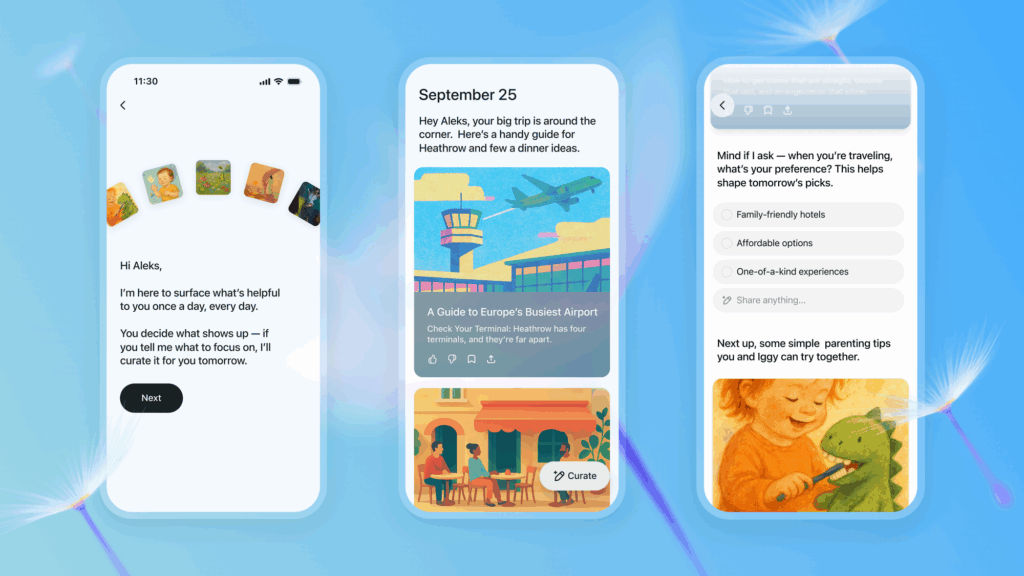Sam Altman has done it again. Fresh off announcing a $100 billion deal, the OpenAI CEO has revealed a game-changing update: ChatGPT is no longer just a reactive Q&A tool—it’s about to proactively deliver content tailored to you.
OpenAI has officially launched ChatGPT Pulse (preview) for Pro users, with plans to expand to Plus users and eventually everyone. Think of it as your AI-powered personal assistant and personalized news feed rolled into one—without the endless scrolling.
Here’s How Pulse Works
Pulse quietly does research for you while you sleep. By morning, it presents personalized updates as “theme cards” in the Pulse feed. Unlike traditional ChatGPT, where you drive every interaction, Pulse anticipates your needs based on:
-
Your chat history and feedback
-
Connected apps like Gmail and Google Calendar
For example:
-
Mention you’re planning a trip to Bora Bora, and Pulse may deliver local weather, travel tips, or discounted flights.
-
Note your baby is six months old, and it pushes developmental milestones and parenting advice.
-
Sync your calendar, and it can draft meeting agendas, remind you to buy gifts, or suggest restaurants when you’re traveling.
A Thoughtful, Non-Distracting Experience
OpenAI’s Samir Ahmed emphasizes: “Pulse is designed to have an ending. It serves you—it’s not meant to keep you endlessly scrolling.” Each update is carefully curated, only valid for the day unless you choose to save or follow up. This approach flips the current “algorithmic feed” model on its head: useful information comes to you, rather than you digging through an endless stream.
Real-World Feedback from Students
During early tests in ChatGPT Lab, students initially found Pulse “meh.” But once they started guiding the AI on what they wanted to see, the impact was immediate:
-
Isaac, a top student, received precise train ticket recommendations and commuting tips after discussing travel plans.
-
Hexi, a diving enthusiast, got targeted advice for diving challenges, even connecting it to risk management concepts she cares about.
The AI’s ability to extrapolate from your inputs gives a true “personal assistant” feel.
Privacy Comes at a Cost
To work effectively, Pulse needs access to personal data:
-
Enabling “chat history references” lets it use past conversations to guide research.
-
Connecting email and calendar requires explicit user permission.
OpenAI assures that Pulse handles this data like normal chat interactions and uses “multiple safety filters,” but specifics are limited. Convenience versus privacy remains a trade-off.
The Next Step: AI Agents
Pulse represents OpenAI’s first move toward AI agents. Fidji Simo, CEO of OpenAI’s applications division, explains:
“The next frontier is agents—AI assistants that can act on your behalf and collaborate like a team member.”
In the future, ChatGPT won’t just research or summarize—it could plan, act, and proactively remind you to meet goals, reshaping how we interact with information.
As this shift happens, traditional search engines and news apps may face serious competition. After all, who could resist a smart, proactive personal assistant?
Learn More:
-
OpenAI Pulse official blog: Introducing ChatGPT Pulse
-
Fidji Simo’s agent vision blog: A New Paradigm of Proactive, Steerable AI

